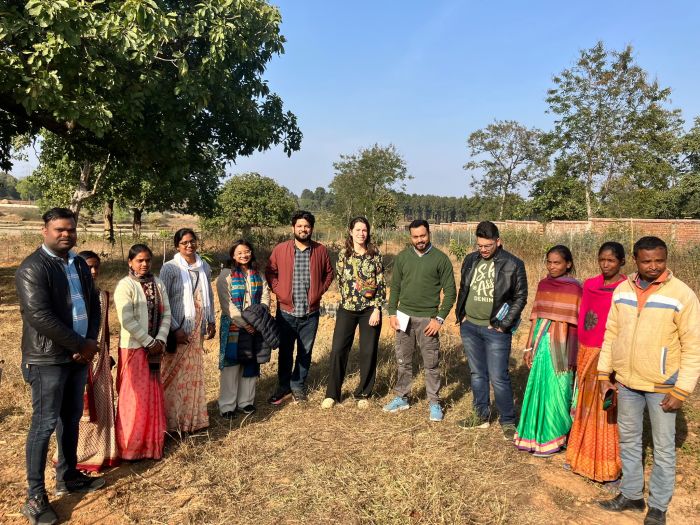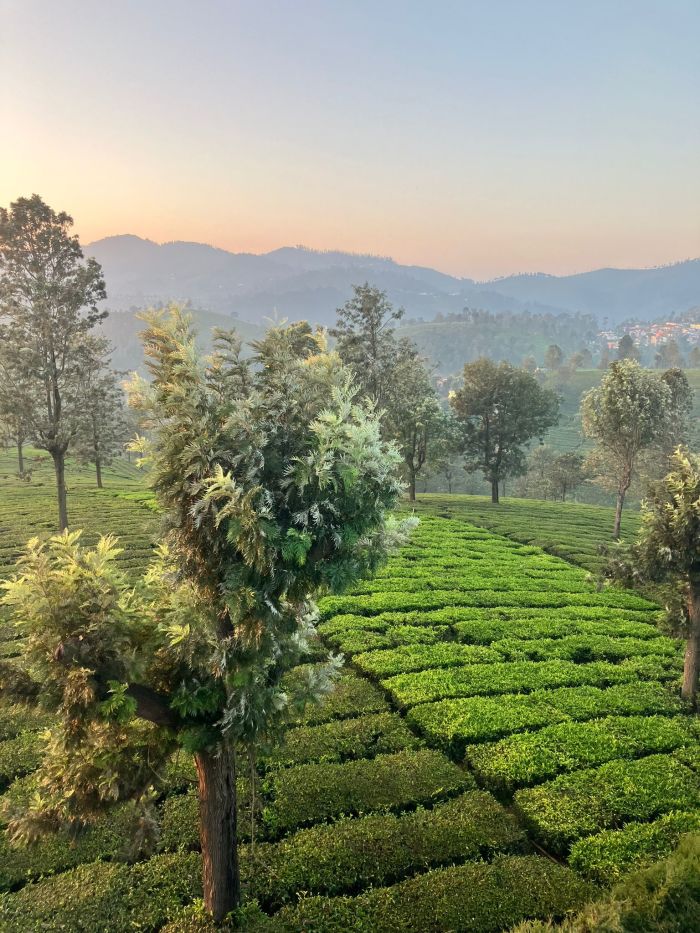As our partnership manager for Asia, Marta Radinovic Lukic visited India — meeting with our local partners and smallholder farmers we’re supporting in the region. In this blog, she relays her experiences.
Coonoor (southern India)
My journey began in beautiful Coonoor, where we held a workshop about Acorn with our potential local partner Rainforest Alliance for tea certificate holders. The goal was to find a potential project we could kick-start with focus on tea.
The good news: Rainforest Alliance and the farmers we visited are very keen on starting a project together with us in India; some farmers have a lot of shade trees planted on their plantations; and the certificate holders are in general very enthusiastic about the project.
The challenge: most farmers only plant a limited number of shade trees, as tea plants need quite a bit of sunlight (don’t we all). This isn’t great for potential carbon sequestration and potential CRUs. So our plan of action is to perform deep-dives on potential agroforestry designs and follow up with their partners to assess if we can design a project that’s suitable for Acorn, farmers and certificate holders alike.
Ranchi (eastern India)
Next, I ventured to Ranchi, the capital of the state of Jharkhand. That’s where our local partner Intellecap is planning to onboard 25,000 farmers this year.
The focus here was on field visits as well as streamlining data collection and the farmer enrollment process. The challenge we’re facing is how to monitor data quality at scale, but luckily we had fruitful discussions with our action-oriented Data Collection Tool team on how to solve this.
More good news: the local partners train the data collectors on Acorn data collection perfectly and – as someone from Acorn – it was great to be able to watch them do so! The local partners are also setting up a good structure to ensure smooth onboarding, and they are now up to collecting 100+ plots per day.
On the other hand: various field visits revealed that there seems to be less irrigation available and less timber planted per plot, which is expected to negatively impact tree survival, CRUs and farmer income. Together with the local partner however, we are looking for ways to turn this around!

Delhi (northern India)
In Delhi, Harm Haverkort (partnership lead for Asia) and I had a very positive discussion with Intellecap and Transform Rural India, Intellecap’s subcontractor and party which is leading the work on the ground in Jharkhand. Among other topics, we discussed how we can ensure solid performance of the current project (maintaining tree survival and reliable irrigation), smooth onboarding as it scales, and the potential for expansion to other areas in India.

Ranchi, once again
Finally, I returned to Ranchi for another training of data collectors and alignment with Transform Rural India. We hope that together we can reach many farmers in rural Jharkhand, and we are working hard to ensure first farmer pay-outs are reaching the farmers as soon as possible!
Other than work: India has been amazing. What stayed with me from first visiting India 10 years ago was the warmth of the people there. And I truly experienced it again this time around. The hospitality of Indian people remains unmatched to anywhere else on the planet. As does the food, which deserves a blog post of its own. I greatly appreciate that this type of work presents opportunities to explore stunning natural landscapes and I even managed a brief weekend-getaway to Rishikesh, a town at the foothills of the Himalayas, with Anne-lot (a fellow partnership manager in the Asia team). Which is of course the ultimate cherry on top.

About Acorn
We help support smallholder farmers in developing countries transition to agroforestry. Together with local partners, we facilitate the funding and training needed by farmers to start their agroforestry transition. Transforming the sequestered CO2 through agroforestry into Carbon Removal Units (CRUs), we offer carbon credits to responsible corporates to help them reach their climate goals. The growth of the trees is measured with satellite imagery, AI and LiDAR, and certified by ICROA-accredited Plan Vivo.
With 80% of the sales revenue going directly to the farmers, it creates an additional income stream and helps them adopt a more climate-resilient way of farming that improves food security, biodiversity, and financial independence.
Get involved with Acorn
Meet our people

Subscribe to our newsletter
Stay updated on our Acorn activities and the latest carbon news
